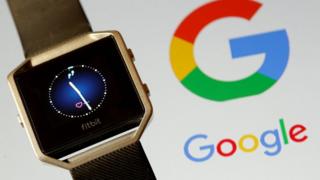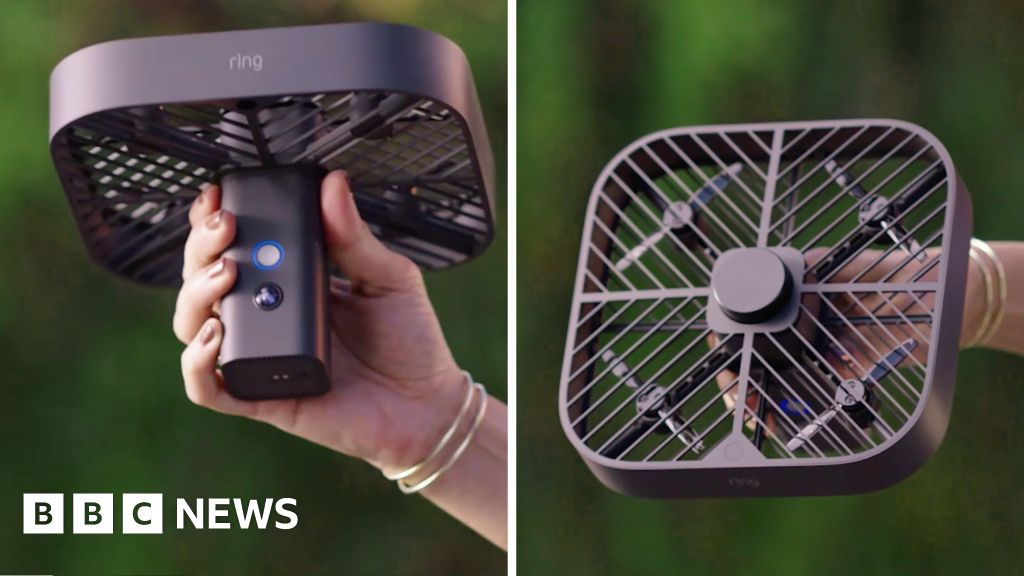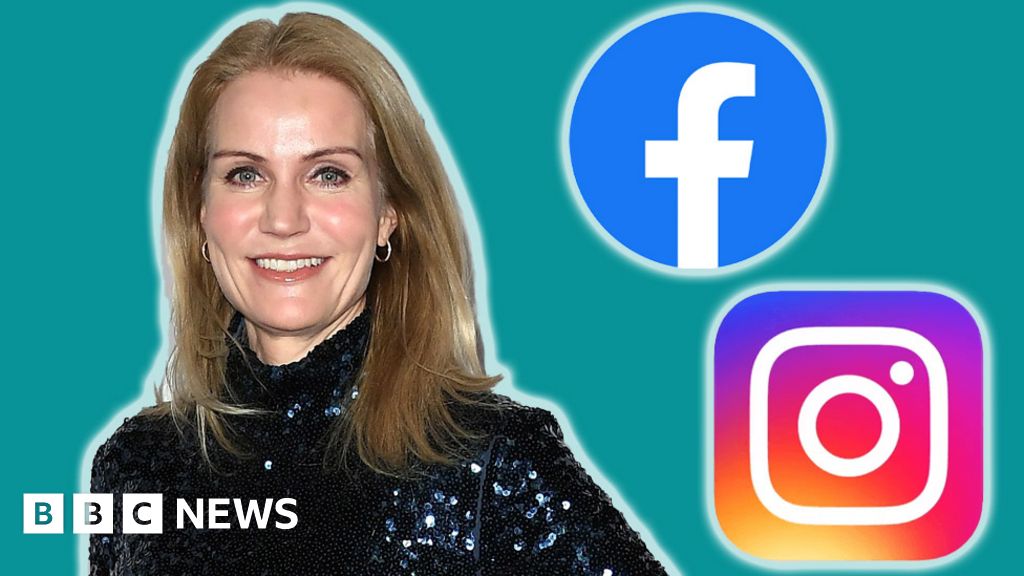 Image copyright
Reuters
Image copyright
Reuters
The European Commission will carry out a full-scale probe into Google's takeover of Fitbit.
The announcement follows a preliminary review, and threatens to derail the purchase of the fitness-tracking firm.
It comes despite Google's offer last month to not use Fitbit's health data for ad targeting.
Google's parent company Alphabet agreed a $2.1bn (£1.6bn) takeover of the wearable tech firm last year. However, the deal has yet to be completed.
In response to the latest development, the tech giant said it was "confident" the acquisition would still go through.
"We appreciate the opportunity to work with the European Commission on an approach that addresses consumers' expectations of their wearable devices," blogged Google's devices chief Rick Osterloh.
The watchdog's investigation is expected to take to four months.
Valuable data
California-based Fitbit helped pioneer the fitness tracker market, launching its first device in 2009. It now has about 30 million active users and has sold more than 100 million gadgets to date.
However, it currently ranks behind Apple, Xiaomi, Samsung and Huawei in terms of global shipments of wearable tech, according to market research firm IDC.
It posted a $132m (£101m) loss in its last annual results, alongside a sales figure that had declined for the fourth year in a row, despite the launch of its Versa 2 smartwatch.
Analysts suggested part of the attraction for Google was the fact that Fitbit had formed partnerships with several insurers in addition to a government health programme in Singapore.
The industry-watchers suggested that the reason the US tech giant was willing to spend so much was because it saw value in Fitbit's user data.
But Google has now explicitly denied this.
"We believe the combination of Google and Fitbit's hardware efforts will increase competition in the sector, making the next generation of devices better and more affordable," wrote Mr Osterloh.
"This deal is about devices, not data."
Despite this, one digital rights activist said he welcomed European Commission's move.
"Google and its parent company Alphabet already have unprecedented control over large parts of the digital world," said Wolfie Christl from Cracked Labs, an Austrian research institute.
"They also want to take over digital health and insurance.
"Letting them acquire Fitbit without additional obligations would be a major step into this direction, and thus should not happen."
The European Commission has reason to be wary of Google's promise to restrict its use of Fitbit's data.
Smart thermostat-maker Nest pledged to keep its user data separate from Google's after it was acquired in 2014. But Google began asking users to let it merge the logs in 2019.
Other tech firms have also reneged on similar assurances.
Most notably, Facebook's efforts to integrate WhatsApp with its other messaging services, despite the chat app having declared in 2014 that it would " remain autonomous and operate independently".
Anti-trust scrutiny
The European Commission has ruled against Google in three previous competition cases, concerning the company's:
The regulator is also considering whether to launch a full-scale investigation into the firm's jobs search tool.
Google also faces increased antitrust scrutiny in the US.
Its chief executive Sundar Pichai faced several claims of anticompetitive behaviour last week when he was quizzed by Congress, including claims that Google had too much control over the purchase and sale of online ads.
In addition, the Senate Judiciary Committee has said it plans its own hearing into Google's "dominance in online advertising" on 15 September.

 5 years ago
875
5 years ago
875 

